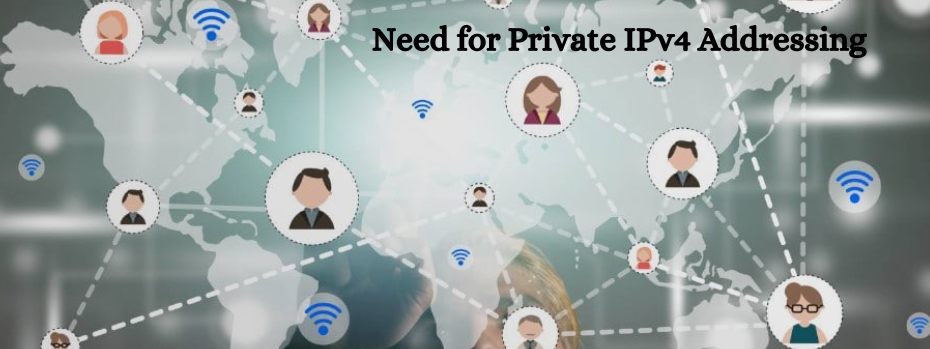Blog
The Need for Private IPv4 Addressing: Securing and Scaling Internal Networks
- April 3, 2024
- Posted by: admin
- Category: Technology

Introduction:
In the vast landscape of networking, the use of IP addresses is fundamental to communication between devices. However, with the proliferation of connected devices and the depletion of available IPv4 addresses, the need for private IPv4 addressing has become increasingly crucial. In this blog post, we’ll delve into why private IPv4 addressing is essential, its benefits, and how it facilitates the secure and efficient operation of internal networks.
Understanding Private IPv4 Addressing:
Before we delve into the need for private IPv4 addressing, let’s first understand what it entails. Private IPv4 addresses are reserved for use within private networks and are not routable over the Internet. These addresses are defined in RFC 1918 and include the following ranges:
10.0.0.0 to 10.255.255.255 (10.0.0.0/8)
172.16.0.0 to 172.31.255.255 (172.16.0.0/12)
192.168.0.0 to 192.168.255.255 (192.168.0.0/16)
These address ranges are designated for internal use within organizations, allowing them to create and manage their own private networks without requiring globally unique IP addresses.
The Need for Private IPv4 Addressing:
Address Space Conservation:
With the depletion of available IPv4 addresses, private addressing enables organizations to conserve public IPv4 addresses by using private addresses internally. This is particularly important for companies with large internal networks that require numerous IP addresses for devices and services.
Security and Isolation:
Private IPv4 addressing provides a level of security by isolating internal network traffic from the public Internet. Devices with private IP addresses cannot be accessed directly from outside the organization’s network, reducing the risk of unauthorized access and cyberattacks.
Network Segmentation:
Private addressing allows organizations to segment their internal networks into distinct subnets, each with its own range of private IP addresses. This facilitates better network management, improved performance, and enhanced security by controlling the flow of traffic between different segments.
Simplified Network Configuration:
Private addressing simplifies network configuration and administration by providing a standardized set of IP address ranges for internal use. This reduces the complexity of managing IP address assignments and ensures consistency across the organization’s network infrastructure.
Scalability:
Private addressing enables organizations to scale their internal networks efficiently without relying on additional public IPv4 addresses. By using private IP addresses and network address translation (NAT), organizations can accommodate the growing number of devices and services within their network while minimizing the impact on public address space.
